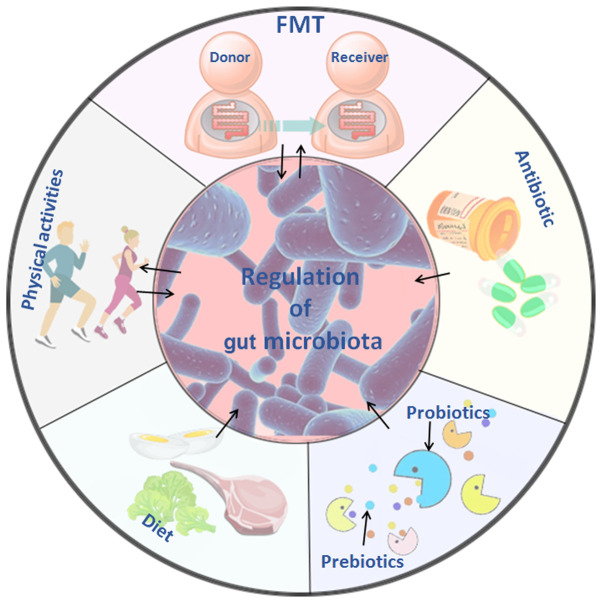Figure 3.
Treatment of cardiovascular diseases based on intestinal microflora and its metabolites. Five treatment methods that are closely associated with intestinal flora are depicted: FMT involves transplanting the intestinal flora of healthy individuals into the patient, and it may delay or prevent developing the disease through the effects of the flora or its metabolites. The use of antibiotics may alter the structure and abundance of intestinal flora, inhibit the proliferation of harmful flora, and improve the progression and prognosis of cardiovascular diseases to a certain extent. Probiotics, such as Bifidobacterium species and lactic acid bacteria species temporarily colonize the intestine, and change the intestinal environment by affecting cardiovascular disease-related pathways and metabolites; prebiotics can selectively stimulate the growth of predominant bacteria in the intestine, improve glucose and lipid metabolism and cooperate with probiotics improve the gut microbiome. Changes in diet composition and habits lead to changes in the metabolic function of intestinal flora, and the reduction of harmful metabolites, such as TMAO, may reduce the incidence of cardiovascular disease. Physical activities of different types and intensities affect the abundance and metabolites of intestinal flora, increase the abundance of beneficial flora, and reduce the high-risk factors that cause cardiovascular disease. TMAO, trimethylamine N-oxide; FMT, fecal microbiota transplantation.

